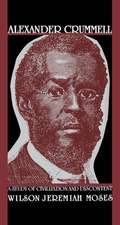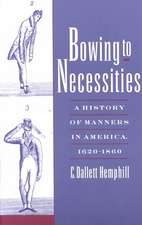Braddock's Defeat: The Battle of the Monongahela and the Road to Revolution
Autor David L. Preston Michael Quinlanen Limba Engleză CD-Audio – 23 mai 2016
Vezi toate premiile Carte premiată
On July 9, 1755, British and colonial troops under the command of General Edward Braddock suffered a crushing defeat to French and Native American enemy forces in Ohio Country. Known as the Battle of the Monongahela, the loss altered the trajectory of the Seven Years' War in America, escalating the fighting and shifting the balance of power. An unprecedented rout of a modern and powerful British army by a predominantly Indian force, Monongahela shocked the colonial world--and planted the first seeds of an independent American consciousness. The culmination of a failed attempt to capture Fort Duquesne from the French, Braddock's Defeat was a pivotal moment in American and world history. While the defeat is often blamed on blundering and arrogance on the part of General Braddock--who was wounded in battle and died the next day--David Preston's gripping new work argues that such a claim diminishes the victory that Indian and French forces won by their superior discipline and leadership. In fact the French Canadian officer Captain Beaujeu had greater tactical skill, reconnaissance, and execution, and his Indian allies were the most effective and disciplined troops on the field. Preston also explores the long shadow cast by Braddock's defeat over the 18th century and the American Revolution two decades later. The campaign had been an awakening to empire for many British Americans, spawning ideas of American identity and anticipating many of the political and social divisions that would erupt with the outbreak of the revolution. Braddock's Defeat was the defining generational experience for many British and American officers, including Thomas Gage, Horatio Gates, and, perhaps most significantly, George Washington. A rich battle history driven by a gripping narrative and an abundance of new evidence, Braddock's Defeat presents the fullest account yet of this defining moment in early American history.
| Toate formatele și edițiile | Preț | Express |
|---|---|---|
| Paperback (1) | 120.79 lei 3-5 săpt. | |
| Oxford University Press – 3 ian 2018 | 120.79 lei 3-5 săpt. | |
| Hardback (1) | 208.56 lei 3-5 săpt. | |
| Oxford University Press – 19 aug 2015 | 208.56 lei 3-5 săpt. |
Preț: 46.61 lei
Nou
7.87€ • 8.30$ • 6.55£
Indisponibil temporar
Specificații
Descriere
On July 9, 1755, British regulars and American colonial troops under the command of General Edward Braddock, commander in chief of the British Army in North America, were attacked by French and Native American forces shortly after crossing the Monongahela River and while making their way to besiege Fort Duquesne in the Ohio Valley, a few miles from what is now Pittsburgh. The long line of red-coated troops struggled to maintain cohesion and discipline as Indian warriors quickly outflanked them and used the dense cover of the woods to masterful and lethal effect. Within hours, a powerful British army was routed, its commander mortally wounded, and two-thirds of its forces casualties in one the worst disasters in military history. David Preston's gripping and immersive account of Braddock's Defeat, also known as the Battle of the Monongahela, is the most authoritative ever written. Using untapped sources and collections, Preston offers a reinterpretation of Braddock's Expedition in 1754 and 1755, one that does full justice to its remarkable achievements. Braddock had rapidly advanced his army to the cusp of victory, overcoming uncooperative colonial governments and seemingly insurmountable logistical challenges, while managing to carve a road through the formidable Appalachian Mountains. That road would play a major role in America's expansion westward in the years ahead and stand as one of the expedition's most significant legacies.The causes of Braddock's Defeat are debated to this day. Preston's work challenges the stale portrait of an arrogant European officer who refused to adapt to military and political conditions in the New World and the first to show fully how the French and Indian coalition achieved victory through effective diplomacy, tactics, and leadership. New documents reveal that the French Canadian commander, a seasoned veteran named Captain Beaujeu, planned the attack on the British column with great skill, and that his Native allies were more disciplined than the British regulars on the field.Braddock's Defeat establishes beyond question its profoundly pivotal nature for Indian, French Canadian, and British peoples in the eighteenth century. The disaster altered the balance of power in America, and escalated the fighting into a global conflict known as the Seven Years' War. Those who were there, including George Washington, Thomas Gage, Horatio Gates, Charles Lee, and Daniel Morgan, never forgot its lessons, and brought them to bear when they fought again-whether as enemies or allies-two decades hence. The campaign had awakened many British Americans to their provincial status in the empire, spawning ideas of American identity and anticipating the social and political divisions that would erupt in the American Revolution.
Recenzii
Unsurprisingly, given its dramatic narrative, this ill-fated campaign has attracted the attention of many fine historians, yet none of them has explored it so thoughtfully and compellingly as David Preston. His "Braddock's Defeat: The Battle of the Monongahela and the Road to Revolution" is distinguished not simply by his refusal to accept traditional interpretations but by his readiness to consider the perspectives of all the protagonists: British, colonial American, French-Canadian and, not least, Indian.
A vivid, sweeping account of a battle with singular impact on American history. The brilliant scholarship behind Braddock's Defeat is exceeded only by David L. Preston's storytelling verve.
Preston has investigated this important, though somewhat obscure, event in American history and penned an absorbing account rich in details, logical in its conclusions and written with great narrative drive. This is definitely in the "Good Read" category.
“With impressive research, new evidence, and close attention to terrain as well as to tactics, David Preston dismantles old stereotypes and provides a fuller understanding of the British, French, and Indian participants in the conflict. A compelling account that will surely become the definitive study of this pivotal battle.” -Colin G. Calloway, John Kimball, Jr. 1943 Professor of History and Professor of Native American Studies, Dartmouth College, author of The Victory with No Name
This compelling and meticulous book revisits the opening shots of a war that would not end until French defeat at Waterloo, and a war that also planted the seeds of American revolution. BRADDOCK'S DEFEAT is an invaluable addition to any library of military history."
David Preston has offered what will probably be the final word on one of the most important battles in North American history. This engaging, thorough book debunks timeworn myths about Edward Braddock and his soldiers while affording their French and American Indian foes long overdue attention and credit for what was their victory more than “Braddock's Defeat.” A vital contribution and singular scholarly achievement."
Notă biografică
Premii
- George Washington Book Prize Finalist, 2016
























